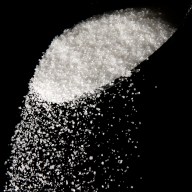Judd Apatow’s success for films like Knocked Up, but failures in television, is a barometer for popular culture.
THE MAN WITH THE GOLDEN CUSS: A week or so ago, new NBC head of entertainment Ben Silverman revealed that he was interested in getting Judd Apatow, writer and director of Knocked Up, to work for NBC, despite Apatow’s previous pledge to stay away from the small screen after the failure of his critically-acclaimed comedies Freaks And Geeks and Undeclared – the former having been canceled by NBC back in the fall of 1999.
This week, in an interview with Alan Sepinwall, TV critic at New Jersey’s Star-Ledger, Apatow admitted that he’d be willing to give TV another try, albeit with some serious reservations. He remains stung by the failure of his shows, especially Freaks And Geeks, which made the prime blunder for TV of being a project with personal resonance for its creator.
“There’s no way for me to know why those shows didn’t succeed,” Apatow told Sepinwall. “There’s a strong argument that it has to do with marketing or scheduling. Those shows were very entertaining to me, but I know that doesn’t mean much. There’s a lot of things I like that don’t connect to a mass audience.”
Apatow admits that he’s been spoiled by the relative freedom afforded by movies with both language and situations that wouldn’t fly on prime time network TV. “My shows would have been dramatically different (with an R), most of all because Freaks and Geeks was about potheads and I could rarely show them doing drugs. That was the essence of the show, that these kids were going nowhere in a haze of pot. We did a couple of episodes that touched on them, we could have really gone much deeper on that issue. It also prevents you from talking about sexuality in an honest way.”
One paragraph in the piece, however, says everything you need to know about the economic differences between TV and movies today: “(W)hile movies are considered a bigger business than television,” Sepinwall writes, “the bar for financial success can be lower. For most of its only season, Freaks and Geeks averaged seven million viewers; get all those people to buy a ticket and you have yourself a hit film, even in 1999 dollars.”
Which basically means that on TV Apatow is a failure, while in movies he’s a success, even if his audience is really no larger. I’m sure this simple fact would provoke heated debate over the relative merits and qualities of either medium, but ultimately it confirms that we’re living in a TV age, not a movie one, since few movies could hope for the sort of audience that a decent network hit can attract. Boiled down to its essence, it means that American Idol is much more important culturally than any summer blockbuster, and vastly more critical than any serious, critically-praised independent film whose press positions it as any sort of social statement. It’s the reason why I feel obliged to be hard on Idol – harder than I’d be on, say, George Clooney’s latest non-comedic political tract – and why Apatow shouldn’t take Silverman’s phone calls.
















